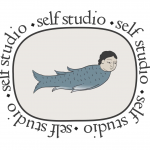In hiring a brand copywriter, you’re looking for something very subtle. What sets brand copywriting apart from other copywriting specialisms is the relative abstractness of the effects of their writing. Where, say, an SEO copywriter has tangible goals, outcomes and processes in mind - driving an increase in organic web traffic, increasing enquiries and ultimately sales, etc - a brand copywriter is looking to influence their readers in a more intangible way.
Of course, there is much overlap between all forms of writing and many of the skills you find in a great SEO writer (strong research skills, concise and accurate writing, a deep understanding of the reader/customer) will also be vital to a brand writer. But branding lacks the directness of call-to-action articles and email funnels.
There are thousands of copywriters out there who profess to understanding “branding” but don’t. They are thus ill-equipped to translate understandings about their clients’ customer base (gold dust in creating good content) into words that drive the right emotional response.
So, I’ve put together this guide outlining 3 things to bear in mind when hiring a brand copywriter. Follow these pieces of advice and you’ll be in a fantastic position to hire someone that’s worth your budget…
But first, for those who are looking for a “brand copywriter” without knowing exactly what that means, a quick explanation on how branding works is available here.
1. Use objectives
Do they take different approaches based on different brand objectives?
You won’t find many copywriter blogs online that don’t insist that “understanding your objective” is a key step in crafting a good brand (or rebrand). This is partly because it’s true but also because the world of SEO articles is a bit of an echo chamber where lots of (unskilled) writers use the first page of Google results as “research” sources and parrot the same points as those articles.
What most of these articles don’t say, however, is how useful the idea of objectives can be in separating out the good copywriters from the ones that will throw words together and call it “branding”.
Presumably you’re hiring a copywriter because you have a specific piece of branding work. What is the objective of that work? If there are several objectives (e.g. educating your customers, changing public perception around a product, targeting a new market, etc) then even better. Once you have this or these down, you can start talking to potential writers.
When interviewing a candidate or being pitched their services, tell them you have one objective and ask them how they would go about achieving it. Then ask them how they would approach the branding copy if the objective were different. If they can’t talk in detail about how a different objective takes a different approach they’re either working to a generalistic, boilerplate way of working (that will likely result in generic, ineffective brand copy) or they don’t understand the nuance of branding and how words can affect different outcomes.
I’ll use an example to illustrate this. Let’s say that a chain of bakeries has come to me to rewrite the copy for their online and in-store branding (flyers, menus, signs, website). We discuss objectives and they tell me that they’re trying to appeal to a different demographic and bring in wealthier customers. With this primary objective, my starting point is to sit down with them and sketch out a series of target customer personas. I would understand how these personas talk about food and shopping, where they tend to work, their travel routines and their sense of humour. From this I might gravitate towards the sorts of books, TV and culture they enjoy for examples of appealing writing…
(To the uninitiated: if this sounds overly complicated and scientific, it’s not! This level of detailed customer profiling can be a gold mine for good content.)
Now, let’s say the bakery instead tells me their primary objective is to launch a new range of pastries. Now, while understanding customer behaviour is still important, my focus shifts onto existing customers. I would start by talking to counter staff (or better still spend some time in-store during relatively busy work hours) about how their regulars and new customers talk about their bread and their experience in the bakery… this in turn generates ideas for how to talk about the new range, etc…
So, hopefully you can see how a different objective feeds into a different creative process.
2. Look for specific ideas
Do they bring ideas and details to your branding process?
I probably shouldn’t say it (apart from anything, I’ll incur the wrath of email and social copywriters), but branding is far more nebulously personal than other forms of copywriting. For that reason, when crafting brand copy you need to work with a writer who aligns with your company values.
It’s far easier to understand a writer’s values in the context of discussions around your business than in seeing what experience they have working with other companies/industries.
One of my least favourite bits of advice for new copywriters is the obsession with finding a “niche”. A niche is good, the logic goes, because it allows them to understand their field in more detail…
But branding is an exercise in lateral thinking, in problem-solving from different perspectives, in searching a wide range of sources. So finding a writer who comes with good ideas specific to you is a big tick. Simply having experience with similar industries will not allow them to tackle your objective from your own unique position.
So, once you’ve talked through branding objectives I would ask them for any ideas - don’t make them feel pressured to come up with finished/complete suggestions, just a sense of where their mind heads in relation to the project and gauge their enthusiasm.
3. Talk to them a lot during the process
Do they want to know a lot of information about you and your customers?
Once you’ve chosen your branding copywriter, give them as much information they need about your business, mission, customers, staff, products, USP, market analysis, etc. The more information they have at their fingertips, the more rich their copy will end up. And don’t just share the positive things - share your failings, learnings, weaknesses… inspiration comes from a range of places and sometimes great copy is born out of a lesson about what your customers don’t want or what you shouldn’t repeat.
This is also a great litmus test for a branding copywriter - the more questions they ask, the more seriously they take the research element of the project. This will also likely align them more closely with your values (which is important, as we saw above).
One way to approach this is to place them in the perspective of a real customer. Have them talk to your product team or receive a pitch from one of your sales reps. At the same time, allow for a two-way interaction where they can give suggestions or take conversations in unexpected directions.
Hopefully this guide will give you food for thought into how to approach hiring a top branding copywriter. As always, if you found this guide useful and want to hire us for content or copywriting (comparison blogs, industry articles, email funnels, product landing pages…), get in touch with us here!


